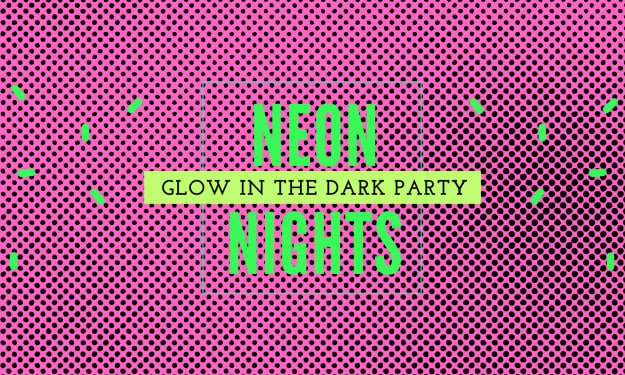Nina Simone: The High Priestess of Soul
"I Sing Just to Know I'm Alive"

Feeling Good
“Stars when you shine, you know how I feel/ Scent of the pine, you know how I feel/ Oh, freedom is mine/ And I know how I feel”
Nina Simone’s deep voice flows like honey. Rich, heavy, deliberate. Her lyrics in Feeling Good transform the mundane into an anthem to the feeling of being free. The brassy melody and her soulful vocals fuel the sense of power that pairs with true freedom. The birds, the blossoms, the stars, the breeze they know the feeling. Listening to it with eyes closed, you can almost feel the unfettered breeze and see the effigy of a woman breaking from her restraints and coming into her own.
Simone was known as the “High Priestess of Soul”. As a performer, she was renowned for being both eclectic and captivating. Her small but muscular frame captured the stage, and her long fingers commanded the piano with both hands as she sang. This was the vision of a woman who didn’t have much power in society delivering vividly raw but subtly bitter performance.
She had also been described as terrifying.
Behind the scenes, Simone struggled with erratic, shifting moods. We didn’t have the words to describe it back then, but today we would recognize it as bipolar disorder. Many stories describe how this manifested in anger, with Simone leaving the stage to throw off her wig and intimidating the people attending to her. She took no disrespect from audiences, demanding their attention, and often putting on unpredictable performances. Ricky Vincent described her as being characterized by "fits of outrage and improvisational genius”. But she also left behind a diary that revealed how depressed and powerless she really felt.
Freedom was something Simone longed for during her career. Born to a poor family in 1933 as Eunice Kathleen Waymon, she performed in bars under her iconic stage name so her Methodist minister mother wouldn’t know she was performing “the Devil’s music”. She was able to leverage her piano playing ability and her velvety voice to win the attention of a record company by age 24. Her first big hit, “I Loves You, Porgy” was recorded while she was still working in a small clubs to make a living. Her style swerved from soul, to blues, to gospel, to R&B, and she resented labels that tried to categorize her in too small a box. She wrote music that defied genre. Music that was radiant, poetic, and empowering, but came with the intensity of a woman living through a period of severe injustice and unrest.
Mississippi Goddam
“Hound dogs on my trail/ School children sitting in jail/ Black cat cross my path/ I think every day's gonna be my last”
Simone was 12 years old when she first performed on stage in a piano recital. Her parents took the front row in the audience, but were asked to move to the back to accommodate white patrons. Simone says she refused to play until her parents were moved back to the front and this incident inspired her future activism.
Simone was well aware of the challenges she faced as a black woman.
Her heritage and experiences seep into every song and every performance. But in response to murder of Medgar Evers and the bombing of the 16th St Baptist Church she released her first song to specifically address racial injustice.
Mississippi Goddam.
It reverberated through a country roiling with racial tension.
The song divided her audience. While her more traditional fans hated it, students and activists loved it. She began attending and performing at civil rights protests. She wanted to fight for the Black community, not just for civil rights, but also to challenge colorism and internalized Western standards of beauty. Though, she had an unconventional look, she used songs like Feeling Good and I Put A Spell on You to show that black girls could be desirable and powerful despite the constructed norm that beautiful women had to be light skinned, small nosed, and dainty.
But with bold stances also comes harsh criticism. Simone believed Mississippi Goddam harmed her career. Being torn down only added to her depression and rage she'd struggle with her whole life. She wrote:
“I can’t reach them unless I turn myself inside out! And sometimes it takes too much energy. And then I feel so hurt that they don’t get me…Maybe I’ll have to get so hard that I don’t care at all. Then there’ll be NO hope for me. And I don’t want to reach that point.”
She used her music to explore these emotions. Most her lyrics didn’t have an explicit social justice message, but simply conveyed the pain, frustration, and fear that Black folks felt watching people be killed with no remorse and no justice. The church bombing was especially heinous because it killed four young black girls and blinded a fifth. This was the spark that lit a fire in her.
She was willing to do whatever she felt she had to for a more just America. This lead her to be critical of Martin Luther King’s peaceful approach.
Sinner Man
“Sinnerman you ought a be praying/ Ought a be praying, Sinnerman/ Ought a be praying/ All on that day”
I don’t want to sugar coat Simone’s legacy. She was a complicated figure.
While she fought for equality and justice, she advocated doing it through violent means and supported black nationalism. She had stated plainly that she believed the United States was “hell” and wanted African Americans to form their own separate country. She was unflinching in her activism, even once performing on a stage with several coffins labeled with the names of murdered black people.
She was justifiably mad. Anger is a natural response to being unheard, scared, and powerless.
Rage, powerlessness, and unpredictability were a theme in her personal life. Her first husband was a deadbeat, her second was physically and verbally abusive. She fired a gun at a record executive for stealing her royalties, flat out saying she was trying to kill him but missed. To this day, Simone's daughter talks about her tumultuous childhood and strained relationship with her mother’s legacy. Simone struggled with her mental health, had to balance her faith with her lifestyle, and dealt with critics making her feel ugly and shameful.
She wrote in her diary:
“I can’t beat the poverty, the inferiority complex, the sex and show business. It’s like I came here whole and slowly through the years, I’ve wasted away to almost nothing—pretend you’re happy when you’re blue—pieces taken out of me hunk by hunk, slowly but surely—paying for whatever help I got with my blood—doing anything to be accepted (anything) and the tragedy of not being accepted after all—not accepting myself—I can’t stand to look at myself in the mirror anymore—I can’t stand the sight.
But then why haven’t I killed myself?”
I think discussing this aspect of her life is important, not just because it’s honest, but also because it shines a light on the emotion in her music.
Sinnerman tells the story of a sinner begging for forgiveness on Judgement Day. It’s a traditional African spiritual song, but it's subdued and somber compared to her other songs. A trilling piano melody gives the song a cold, desperate sentiment, but there is no way for the sinner to escape his judgement. The message the song implies is to look inside yourself, and to remember that no matter what power or riches you have on Earth, you will face judgement one day.
Simone was abused but also abusive. She had erratic mood swings and used sex as an outlet, even sparking rumors that she was bisexual. Her experiences and mental health shaped her reputation and legacy, but when she asks why she didn’t kill herself, what is her answer? What kept her fighting?
I Put a Spell on You
“I put a spell on you/ ‘Cause you're mine/ You better stop the things you do/ I ain't lyin’/ No, I ain't lyin’"
Simone’s activism is, unfortunately, still relevant today. Dark skinned Black women still struggle against traditional beauty standards. Black people encounter mental health issues that are under diagnosed compared to white patients. Black men are still being killed at disproportionate rates. We still need to remind society that Black lives matter.
Listening to Simone’s music, you can hear her passion and her pain. You'll hear the same thing at BLM protests today. But between the righteous anger and grief, we all have to find things to uplift.
Simone’s music endures to this day. Sinnerman is used in the end credits for HBO’s Lovecraft Country, a show that appropriates stories by H. P. Lovecraft, an extremely racist author, and gives them to African American characters.
Simone’s music is atmospheric and filled to the brim with raw emotion. The kind of emotion that comes from strife and longing, but still has a beauty to it. Her masculine vocal style moves me every time I hear her music. She conveys the feeling of being confident and seductive because of I Put a Spell on You that can be felt by anyone. Feeling Good, personally, makes me feel empowered despite the mental health issues I share with Simone. And of course, Mississippi Goddam is a hymn that shook the status quo.
Simone died in 2003. I was 10 years old, serving as a reminder that the Civil Rights Movement was not that long ago. We still have a lot of work to do. Progress is slow and frustrating, but we fight for it so the next generation can stand on our shoulders, just like the generation before us did.






Comments
There are no comments for this story
Be the first to respond and start the conversation.